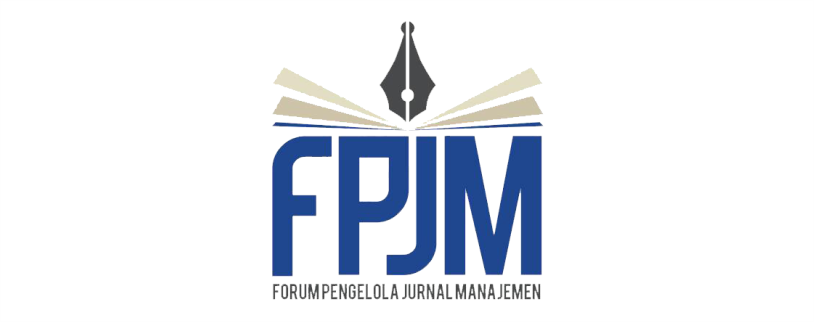Marketing Intelligence dalam Menumbuhkan Jiwa Entrepreneur pada Generasi Milenial
DOI:
https://doi.org/10.26905/jmdk.v8i1.4245Keywords:
Entrepreneurial Spirit, Millenial Generations, Marketing IntelligenceAbstract
Indonesia is currently coming into a demographic dividend era occuring due to changes in the age structure of its population because the proportion of productive age is above 2/3 of the total population and around 50.36% of the population of productive age are basically millennial generation. This is an opportunity that must be utilized as well as possible by maximizing the capabilities of the current millennial generations which have open, free, critical, and courageous mindset as the essential things in entrepreneurship. The aim of this research is to find out the effect of marketing intelligence in growing the entrepreneurial spirit in millennial generations by using quantitative approaches and descriptive   analysis method. The results show that: 1) marketing intelligence activities performed by millennial generation can help growing the entrepreneurial spirit; and 2) marketing research has the dominant influence of the growing entrepreneurial spirit of the millennial generation in marketing intelligence activities. This marketing intelligence activity does not have to be done in a group, but it can be done independently or alone.
https://doi.org/10.26905/jmdk.v8i1.4245
Â
Downloads
References
Ambarwati, A., & Sobari, I. S. (2020). Membangun Jiwa Kewirausahaan Di Era Milenial Bagi ahasiswa Institut Stiami Kampus Tangerang Selatan. Jurnal Komunitas : Jurnal Pengabdian Kepada Masyarakat, 2(2), 140–144. https://doi.org/10.31334/jks.v2i2.736
Armadyah Amborowati, M. S. (2015). STUDI DUKUNGAN MARKETING INTELLIGENCE PADA STRATEGI PEMASARAN | Amborowati | Seminar Nasional Informatika (SEMNASIF). http://jurnal.upnyk.ac.id/index.php/semnasif/article/view/1365
Badan Pusat Statistik. (2018). STATISTIK GENDER TEMATIK: PROFIL GENERASI MILENIAL INDONESIA. Kementerian Pemberdayaan Perempuan dan Perlindungan Anak.
Burns, A. C., Veeck, A., & Bush, R. F. (2017). Marketing research (Ninth edit). New York : Pearson Education.
Carlson, E. (2008). Who are the Lucky Few? In The Lucky Few (pp. 1–10). Springer. https://link.springer.com/chapter/10.1007%2F978-1-4020-8541-3_1
Guoxiang, L., & Zhiheng, Q. (2013). Data Mining Applications in Marketing Strategy. 2013 Third International Conference on Intelligent System Design and Engineering Applications, 518–520. https://doi.org/10.1109/ISDEA.2012.126
Hatta, G. (2008). Pedoman Manajemen Kesehatan di sarana pelayanan kesehatan. Revisi, Jakarta Universitas Indonesia.
Hidayatullah, S., Rachmawati, I. K., Aristanto, E., Waris, A., & Patalo, R. G. (2020). Peran Sistem Informasi Pemasaran, Kualitas Pelayanan dan Entrepreneurial marketing serta Kepuasan Terhadap Loyalitas Generasi Milenial Berkunjung ke Tempat Wisata. Jurnal Ilmiah Bisnis Dan Ekonomi Asia, 14(1), 74–83. https://jurnal.stie.asia.ac.id/index.php/jibeka/article/view/184
Hidayatullah, S., Waris, A., & Devianti, R. C. (2018). Perilaku Generasi Milenial dalam Menggunakan Aplikasi Go-Food. JURNAL MANAJEMEN DAN KEWIRAUSAHAAN, 6(2), 240–249. https://doi.org/10.26905/jmdk.v6i2.2560
Howe, N., & Strauss, W. (2000). Millennials rising: The next great generation. Vintage.
Kottler, P., & Armstrong, G. (2008). Prinsip-Prinsip Pemasaran. Ed. 12, Jilid 1. Jakarta: Erlangga.
Lancaster, L. C., & Stillman, D. (2003). When generations collide: Who they are, why they clash, how to solve the generational puzzle at work. HarperBusiness New York, NY. https://pdfs.semanticscholar.org/bd24/8f640f066d6a81b470f93aa3fe49295c852b.pdf
Li, W. (2006). Entrepreneurial intention among international students: Testing a model of entrepreneurial intention. Paper Presented at the USASBE Small Business Advancent National Center.
Luo, Y., Cai, Q. R., Xi, H. X., Liu, Y. J., & Yu, Z. M. (2012). Telecom customer segmentation with K-means clustering. ICCSE 2012 - Proceedings of 2012 7th International Conference on Computer Science and Education. https://doi.org/10.1109/ICCSE.2012.6295158
Mannheim, K. (1952). The sociological problem of generation. Essays on the Sociology of Knowledge.
Nurgiyantoro, B., & Gunawan, M. (2000). Statistik Terapan untuk Ilmu-Ilmu Sosial. Gadjah Mada University Press, Yogyakarta.
P.D, S. (2011). Metode Penelitian Pendidikan (pendekatan kuwantitatif,kuwalitatif,R&D). In Alfabbeta Pres.
Vern Kurniawan. (2020). Definisi dan Sistem Kerja Marketing intelligence | BINUS UNIVERSITY BANDUNG - Kampus Teknologi Kreatif. https://binus.ac.id/bandung/2020/04/definisi-dan-sistem-kerja-marketing-intelligence/
Yoris Sebastian, D. A. dan Y. L. (2016). Generasi Langgas Millenials Indonesia. Gagas Media.
Downloads
Published
Issue
Section
License
Authors who publish with this journal agree to the following terms:
(1)Â Copyright of the published articles will be transferred to the journal as the publisher of the manuscripts. Therefore, the author confirms that the copyright has been managed by the journal.
(2) Publisher of Jurnal Penelitian is University of Merdeka Malang.
(3) The copyright follows Creative Commons Attribution–ShareAlike License (CC BY SA): This license allows to Share — copy and redistribute the material in any medium or format, Adapt — remix, transform, and build upon the material, for any purpose, even commercially.












